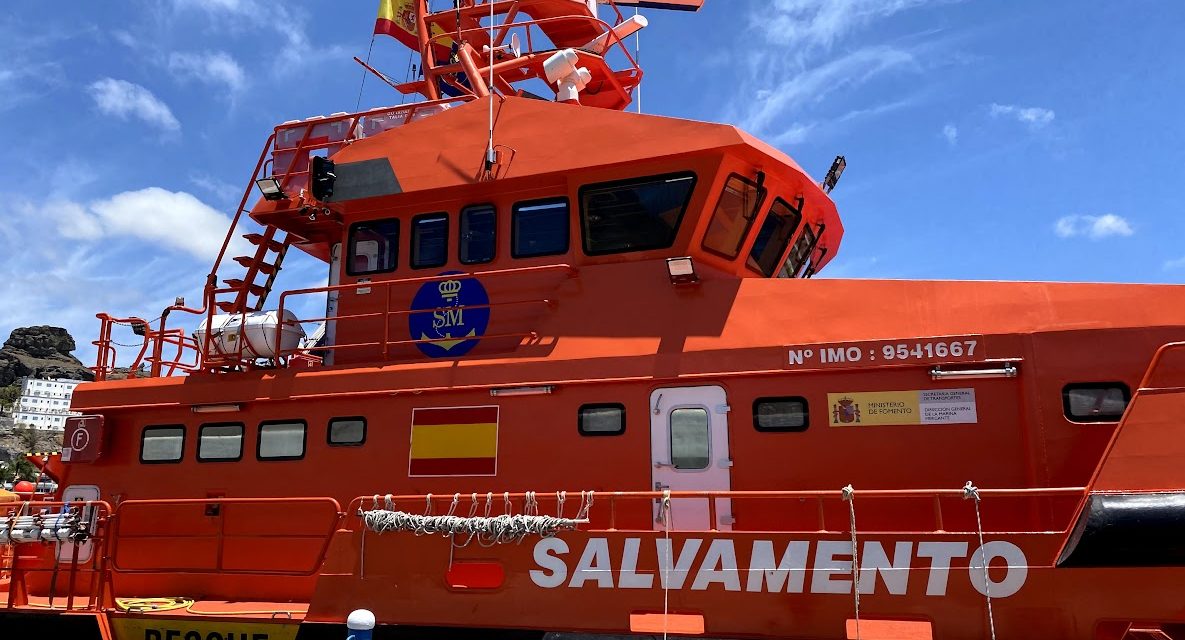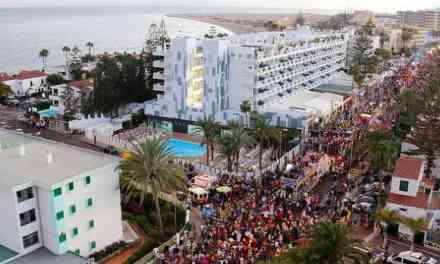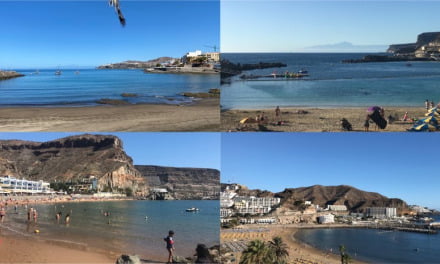Mogán’s Mayor Bueno has sparked controversy, once again, having taken a stance against the use of the public port of Arguineguín as a base for Spanish maritime rescue operations. In an apparent effort to reclaim the port for commercial and tourism purposes, Bueno has unexpectedly proposed relocating the two Salvamento Marítimo (maritime rescue) vessels currently stationed there. This led to a heated debate in the July town council plenary session held on Friday, with the Mayor emphasising the need to prioritise the economic interests of the municipality over the operational requirements of the maritime rescue service. However, the decision’s practicality and consequences have been called into question by various stakeholders, as well as opposition parties.
Bueno argues that the presence of the Salvamento Marítimo vessels in the Arguineguín Port has been detrimental to the economic activities in the area. She cited a specific incident where these rescue vessels occupied valuable berthing spaces, leaving a local excursion and other tourism companies without adequate mooring options, pointing out that these businesses contribute significantly to the development of the municipality and the island, paying substantial fees of over €3,000 every six months, in addition to a per-passenger fee for each of their excursions along the coast.
By claiming that the maritime rescue vessels hinder commercial and touristic activities, the Mayor is seeking to bolster her new proposal to relocate them elsewhere. She believes that the port’s current usage by Salvamento Marítimo jeopardises its standing as, what she termed, the most profitable port in the Puertos Canarios network on Gran Canaria.
While Bueno’s statements may seem appealing to some local businesses, there are some very practical challenges to consider. The Salvamento Marítimo is a public enterprise under the jurisdiction of the central Spanish government, in Madrid, and is tasked with ensuring maritime safety in Spanish waters, including rescue operations for migrants arriving on makeshift boats. The strategic location of Arguineguín Port might rightly be seen as crucial for timely and efficient rescue missions, especially in the heavily trafficked waters surrounding the Canary Islands.
Additionally, any decision to move the maritime rescue vessels to, say, Puerto de Arinaga in Agüimes would need to account for the operational needs and accessibility of this alternative port. Ultimately maintaining the effectiveness and response capabilities of the rescue operations must be weighed without compromising the safety and security of those at sea.
The Political Ploy
This sudden debate surrounding an as of yet unrevealed relocation proposal unfolded in the context of Bueno’s new appointment as representative of Mogán on the board of directors of Puertos Canarios. The majority approval for this proposal highlights her influence within the local government, enjoying an absolute majority, with a rather incredible 77% hold over the town council. However, as she knows well, the ultimate decision to relocate the maritime rescue vessels falls under the jurisdiction of the central government, as irregular migration and maritime rescue management are federal responsibilities. By choosing to voice her opposition to marine rescue operations Bueno sends a clear signal about her displeasure over being on the frontier of the deadly Canary Route for migrants and pours fuel on the fire of anti-migrant feeling among her core supporters, while appearing to be doing something about it she will, it seems, paint a picture of a plucky defender of their interests, courageously standing up to central government over an issue that is usually seen as a positive addition to the maritime environment.
Bueno says she plans to engage in discussions with both Puertos Canarios and the soon-to-be-appointed new president of the Las Palmas Port Authority, Beatriz Calzada, after the summer period. These meetings will likely address concerns which she says have been raised by local businesses and stakeholders, while also acknowledging the operational requirements of the Salvamento Marítimo. A delicate balance will have to be struck to ensure the safety of those navigating the waters surrounding the Canary Islands, as well as mitigating any perceived obstacle to trade or tourism in the port.
Bueno has pledged to push for the execution of planned investments in both Arguineguín and Mogán, that seek to revitalise the area and alleviate their perceived neglect.
The move by Mogán’s favourite Mayor to try to relocate Spanish maritime rescue operations out of Arguineguín Port has sparked a contentious debate between the economic interests and operational requirements of this facility. While local businesses have apparently voiced some concerns over the impact on tourism and commerce, the practicality and implications of such a decision will need very careful consideration. As discussions continue between the local council, Puertos Canarios, and relevant authorities, finding a viable solution that addresses the needs of all stakeholders while ensuring maritime safety will be paramount.










